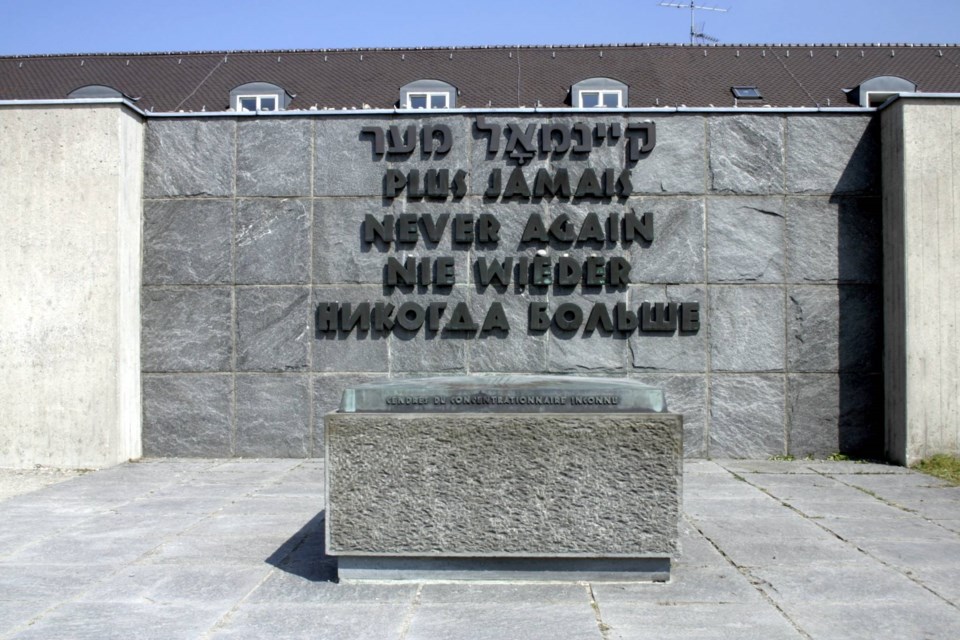On October 23, 2018, Congresswoman Yvette Clarke of Brooklyn honored a 93-yr-old WWII Veteran with the Congressional Medal of Honor--the nation's highest civilian recognition-- for his contribution in the fight against Nazi-Germany. That same day, the President of the United States declared himself a nationalist.
Why, you might ask, is this significant?
Well, "nationalism" is the seed Hitler planted to grow "Naziism." And as a German, born and raised, both words still give me the chills.
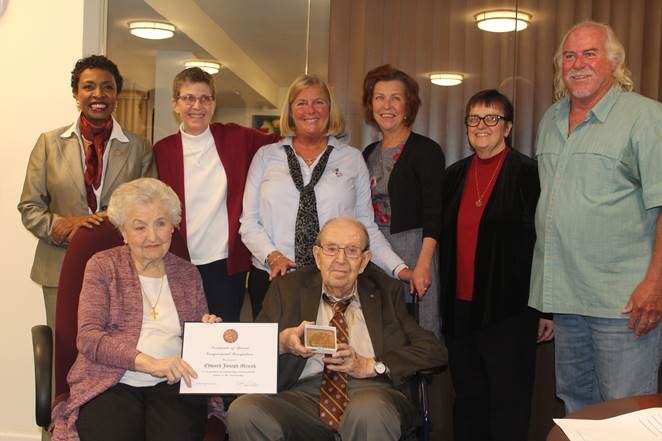
I live and work as a news editor in New York City now. As a Brooklyn resident and German citizen, I am grateful to this veteran's service. If I would have had the opportunity to meet him, I would have said: "Thank you for helping to free my country from the Nazi dictatorship and making it possible for Germans like my mother and myself to grow up and live in a now prosperous, peaceful and open society."
A weird thing to come from somebody who was born in 1980, 35 years after WWII? Maybe. For more historical context: My mom was born in 1954, nine years after the war ended. My grandmother was 16 when Hitler attacked Poland in 1939 and WWII began.
The "War" ended almost 74 years ago, yet it is still omnipresent in Germany. It's ok. And I tell you why:
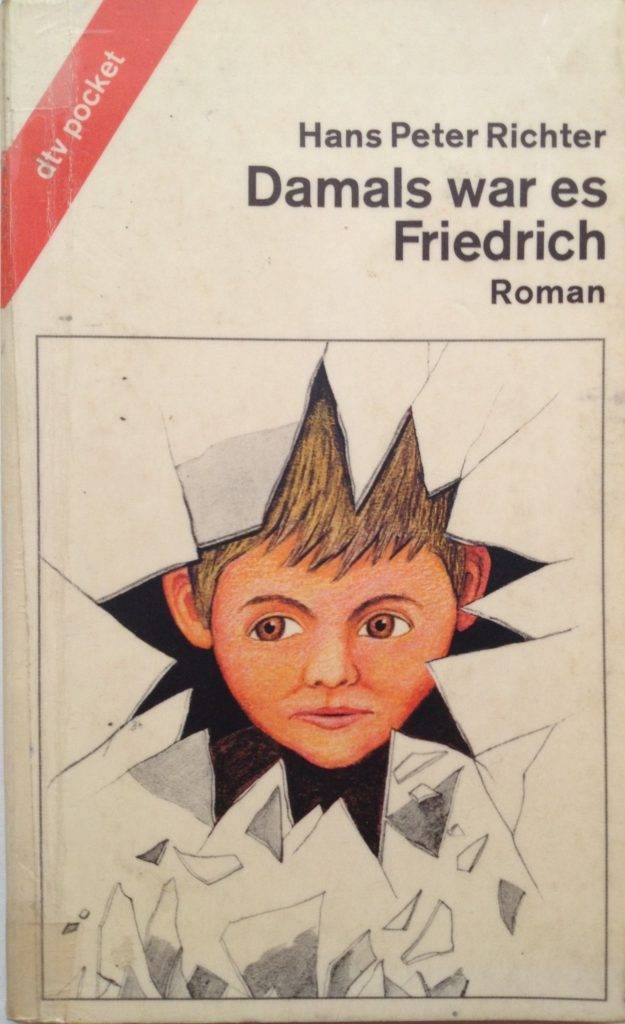
I first became aware of it, this dark cloud of our past, when my father smacked me for drawing a swastika on my coloring book. I may have just been in kindergarten. I saw it tagged on a building somewhere, and I did not know what it was.
Also in school, we were confronted with that dark, 12-year-long— episode of our country, at any given opportunity: in social studies, history, in French (as part of French history) and English (well, as part of English history).
In fourth grade, we read "Friedrich," a novel about two boys who became friends during Hitler's rise to power. And one day, Friedrich, a Jewish boy, had to go into hiding to survive. Very unfortunately, Friedrich did not survive.
In the 7th grade, I was 12 when we watched our first documentary on concentration camps with real, raw footage taken by the U.S. troops. (It was horrible, horrible, horrible).
It was then, that I began to study this subject on my own and went through a phase where I devoured any book on the matter.
Also, there are specific dates, we all know:
- January 1933: Hitler was elected German Chancellor
- November 9, 1938: "Reichskristall" Nacht, the anti-Jewish pogroms that ravaged the communities all over the country, destroyed synagogues and businesses. Germany just commemorated the 80th anniversary.
- September 1, 1939: Hitler attacked Poland which marked the beginning of WWII.
- May 6, 1942: D-Day, the landing in the Normandy marks the beginning of the U.S. offensive against the German troops in France.
- May 8, 1945: Germany capitulates.
We study these dates in school and continue to be reminded by the news, on TV, in cultural programs, documentaries, all the time to this day...
And while it is a dark subject and can be depressing, it hasn't tainted my spirit. Honestly. Let me tell you why.
After WWII, Americans, together with the British and the Russians, occupied my country. Americans, launched a de-Nazification and re-education campaign (Yes, you Americans!). As a result, anything Nazi-related — books, insignia, flags — is verboten and punishable by law, to this day! All statues glorifying the past or past "heroes" have been taken down. And I am very thankful for that.
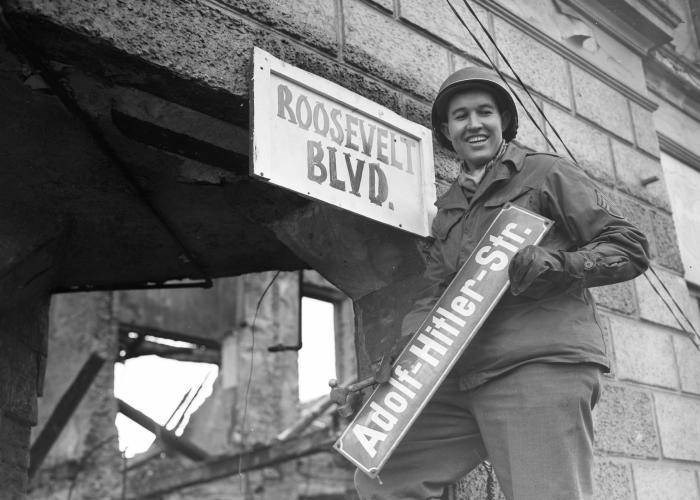
Americans also introduced political science as a subject in our universities to teach us Democracy. Consequentially, German students who want to become teachers of any subject have to take political or social science as part of their general education requirements, because of their responsibility in shaping the future minds of young German students. Americans did that, and I am thankful.
One undeniable lesson that has been drilled into our heads is the importance of understanding history and the past. We are forced to look at it, dissect it, wrestle with it... even grieve over it and feel guilty about it. But above all things, learn from it, so we know to do better.
Which brings me to the question that befuddles me today: Why is it so hard for the American government to do the same for its own citizens?
If I (we, you) don't look at it, how can I (we, you) heal?
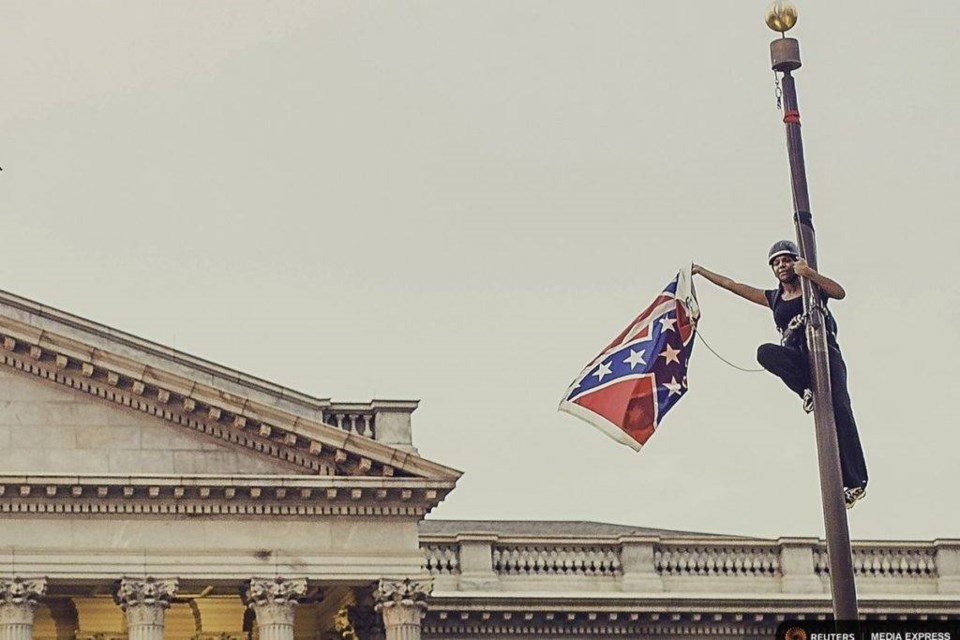
And to add to that: If I don't pay attention to what is going on today, if I remain silent and thereby become complicit to these evil forces — bigotry, racism, xenophobia — that never have been completely eradicated, yet seem to be emboldened by political leaders and their extremist followers (not only in the U.S. but also in Germany, Europe ), that's when I become guilty. That will be my shame.
I wish Americans as a collective (please forgive the generalization) would know that and/or be willing to understand and accept it. I wish you could reap the benefits that your government, your soldiers, your people brought to us Germans 74 years ago!
We Germans say: "Wehret den Anfängen!," which means Watch the beginnings and remain vigilant (Never Again)!
The question is: If you don't know your beginnings — or chose to ignore them — how can you truly be vigilant? History will repeat itself, again. And again...
Sincerely,
Andrea Leonhardt, Managing Editor, BK Reader

